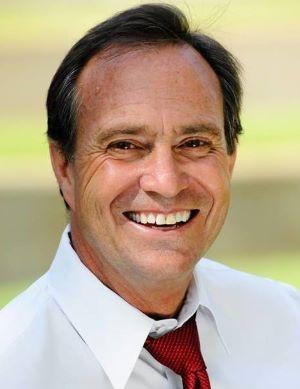Mississippi becomes the 37th state to legalize medical marijuana.
Minnesota medical marijuana patients will soon be able to buy buds, South Dakota medical marijuana patients will be able to buy edibles, and more.
A Michigan detective cops to dealing dope, a Missouri deputy was crazy for prescription pills, and more.
Psilocybin is making some news this week in Colorado, Wisconsin Republicans roll out a restrictive medical marijuana bill, and more.
Tennesseans could send their legislators a message on marijuana policy under a pair of bills just filed, Costa Rica's president vetoes a medical marijuana bill and demands changes, and more.
South Dakota medical marijuana patients will get to enjoy their edibles after all, a New Hampshire subcommittee kills one marijuana bill but more are coming, and more.
An Arizona judge upholds social equity provisions in the state's marijuana law, the SAFE Banking Act will get another House floor vote, and more.
The SAFE Banking Act advances in the House, a group of House members want a vote on marijuana legalization, and more.
With the signature of Gov. Tate Reeves (R) on a compromise medical marijuana bill on Wednesday, Mississippi becomes the 37th state to legalize the use of marijuana for medicinal purposes.

Mississippians should see dispensaries operating before year's end. (Sondra Yruel/Drug Policy Alliance)
Mississippi voters had overwhelmingly approved medical marijuana at the polls in November 2020, passing a broad medical marijuana measure,
Initiative 65, with 74% of the vote (and rejecting a more restrictive legislative alternative,
Initiative 65A.) But that victory was nullified by the state Supreme Court, which ruled that the state's signature gathering requirements for initiatives could not be complied with, invalidating not only Initiative 65 but also the whole initiative process in the state.
Heedful of the will of the people, both the legislature and the governor vowed to get a medical marijuana bill passed. The Supreme Court ruling was in May 2021; it took until now for the executive branch and the legislative branch to come to agreement on how to replace what the judicial branch threw out. Meanwhile, patients waited increasingly impatiently.
They got medical marijuana, but in a more restrictive form that what the voted for back in 2020. The Mississippi Medical Cannabis Act (Senate Bill 2095) allows patients to purchase smokeable marijuana, but only ¾ of an ounce per week, and there is no provision for home cultivation. Marijuana flower must be no more than 30 percent THC, while concentrates must be no more than 60 percent.
People with a specified list of conditions -- cancer, Parkinson's, Huntington's, muscular dystrophy, glaucoma, spastic quadriplegia, HIV, AIDS, hepatitis, amyotrophic lateral sclerosis (ALS), Crohn's, ulcerative colitis, sickle cell anemia, Alzheimer's, agitation of dementia, PTSD, autism, pain refractory to opioid management, diabetic/peripheral neuropathy, spinal cord disease, or severe injury -- qualify for medical marijuana.
People with chronic medical conditions that produce wasting, severe nausea, seizures, severe muscle spasms, and chronic pain also qualify, but chronic pain is narrowly defined as "a pain state in which the cause of the pain cannot be removed or otherwise treated, and which in the generally accepted course of medical practice, no relief or cure of the cause of the pain is possible, or none has been found after reasonable efforts by a practitioner."
Doctors, certified nurse practitioners, physician assistants, and optometrists can all sign recommendations for patients if they believe the patient "would likely receive medical or palliative benefit" from medical marijuana. But before they can do that, they have to have completed eight hours of continuing medical education courses on medical marijuana (and five hours each year after that) and have performed an in-person examination of the patient.
People who want to get in the medical marijuana business can obtain licenses if they pay nonrefundable application fees ranging from $1,500 for a 1,000-square foot canopy micro-cultivator license to $100,000 for the largest operators. There is no cap on the number of medical marijuana businesses. There will be a wholesale tax of 5 percent in addition to the state sales tax of 7 percent.
Marijuana reform advocates generally praised the passage of the bill, though with some reservations.
"With this victory, tens of thousands of Mississippians with debilitating health conditions will finally be able to safely and legally access something that can alleviate their pain and improve their quality of life. Mississippi now serves as the latest example that medical cannabis legalization is possible in any state in the country. We are hopeful that this move will add to the growing momentum towards cannabis policy reform in the South," said Toi Hutchinson, president and CEO of the Marijuana Policy Project (MPP) in a press release.
"Marijuana access is long overdue for Mississippi's patients," NORML's State Policies Manager Jax James said in a blog post. "The overwhelming majority of voters decided in favor of this policy change over a year ago, and for the past 14 months the will of the people has been denied."
But James also expressed disappointment in some of both what the bill does contain and what it does not.
"We remain concerned that lawmakers saw fit to add unnecessary taxes on cannabis products, that patients are prohibited from home-cultivating limited amounts of cannabis for their own personal use, and that those with chronic pain are restricted from accessing cannabis products until first using more dangerous and addictive substances like opioids," she said.
For MPP, though, the bottom line was that another state now allows patients access to medical marijuana.
"Despite tremendous support, Mississipians faced an uphill battle for a medical cannabis program. With this new law, justice has finally prevailed. Patients in Mississippi who are seriously ill will no longer be subject to arrest and criminal penalties for using medical cannabis and instead will be met with compassion. We applaud the legislature for working to restore the will of the voters in one of the most conservative states in the nation and Gov. Reeves for signing it into law," said Kevin Caldwell, MPP Southeast legislative manager.
The state Department of Health will begin issuing patient registry cards in 60 days, begin accepting applications from practitioners and begin licensing marijuana businesses other than dispensaries within 120 days, and licensing dispensaries within 150 days. The clock is ticking.
back to top
Minnesota medical marijuana patients will soon be able to buy buds, South Dakota medical marijuana patients will be able to buy edibles, and more.
MinnesotaMinnesota Patients Can Buy Buds Beginning in March. Patients registered in the state's Medical Cannabis Program will be eligible to buy dried cannabis flower for smoking from the state's medical cannabis dispensaries starting March 1. In preparation for the change, registered patients interested in smokable cannabis can make an appointment for a consultation with a medical cannabis dispensary pharmacist beginning Feb. 1 so they will be pre-approved to buy pre-packaged dried flower and pre-rolls once available. Consultations, which can be in-person or virtual, are required when a patient changes the type of medical cannabis they receive. Smokable cannabis may be available a few days before March 1, if the state's relevant administrative rules are finalized early. Patients should check with their medical cannabis dispensary for further details. The sale of smokable cannabis is limited to patients and caregivers who are 21 years or older and who are registered with the Medical Cannabis Program.
South Dakota
South Dakota House Committee Votes to Ban Edibles. Ignoring the will of the voters, who in 2020 overwhelmingly approved a medical marijuana initiative that included access to marijuana edibles, the House State Affairs Committee last Wednesday voted narrowly to ban them. The committee voted 7-6 to approve House Bill 1058. "The purpose of the bill is about keeping children safe from exposure and accidental ingestion of edibles," claimed sponsor Rep. Fred Deutsch (R-Florence). The bill would make it difficult for medical marijuana retailers to have viable businesses by restricting what are popular items in most medical marijuana states, industry supporters say.
South Dakota House Kills Bid to Ban Edibles. The state House of Representatives voted last Thursday to defeat House Bill 1058, which would have blocked medical marijuana patients from using edibles, concentrates, and extracts. The measure had been approved in committee, but died on a 47-21 vote.
Wisconsin
Wisconsin Republicans File Medical Marijuana Bill. State Sen. Mary Felzkowski (R) and Rep. Patrick Snyder (R) have filed a restrictive medical marijuana bill that would bar the use of smoked or vaped marijuana, It would also create a commission to regulate medical marijuana in the state. Physicians would have to be certified by the commission before they could recommend medical marijuana. The bill, which has yet to be posted to the legislative website, faces long odds.in the Senate, where Senate Majority Leader Devin LeMahieu (R) has said he thinks medical marijuana legalization should be a federal issue.
back to top
A Michigan detective cops to dealing dope, a Missouri deputy was crazy for prescription pills, and more. Let's get to it:
In Marietta, Georgia,
a Cobb County sheriff's deputy was arrested last Friday for bringing drug contraband into the Adult Detention Center. Deputy Dyimond Johnson, 30, went down after an internal investigation at the jail. He is charged with "crossing guard lines with a controlled substance," violating his oath of office, making a false statement, and conspiracy to commit a felony. He is now a former deputy.
In Hillsboro, Missouri, a Jefferson County sheriff's deputy was arrested last Friday for allegedly stealing prescription drugs both on and off duty. Now-former Deputy Michael Filsinger, 35, used his access to the department's report management system to find reports involving prescription drugs, then reached out to people named in those reports claiming to be a detective following up on previous investigations and stole drugs during some of those interactions. He is charged with four counts of felony stealing, one county of misdemeanor stealing, and one count of misuse of official information by a public servant.
In Darlington, South Carolina, a Darlington County jail guard was arrested Tuesday after getting caught with contraband including marijuana, a cellphone, and pocket knife inside the W. Glenn Campbell Detention Center. Devonte Rashawn Harrell is charged with misconduct in office and possession of marijuana. He has now been fired.
In Highland Park, Michigan, a former Highland Park police detective pleaded guilty last Friday to dealing fentanyl-laced heroin. Tiffany Lipkovitch, 46, a 10-year veteran of the department, worked together with another woman on drug deals, which the FBI recorded. In one deal, Lipkovitch introduced a drug buyer to her partner in crime to score dope, for which she received $300. Lipkovitch pleaded guilty to conspiring to distribute controlled substances and is now looking at up to 40 years in prison.
back to top
Psilocybin is making some news this week in Colorado, Wisconsin Republicans roll out a restrictive medical marijuana bill, and more.

South Dakota -- no medical marijuana edibles for you if the legislature has its way. (Creative Commons)
Delaware Marijuana Legalization Bill Wins House Committee Vote. The House Health and Human Development Committee voted Wednesday to approve a marijuana legalization bill, House Bill 150. The bill legalizes possession of up to an ounce of marijuana by people 21 and over but does not allow people to grow their own. Instead, people would have to purchase marijuana from a state-regulated cultivation, manufacturing, and distribution industry. Basically, the same bill has been introduced each year since 2019 but has never gotten as far as a House floor vote. This year, a proposed Social Equity Loan fund was removed because funding measures would require a three-fourths supermajority to pass. Governor Jay Carney (D) remains opposed to the bill despite changes made designed to appease him.
Medical Marijuana
South Dakota House Committee Votes to Ban Edibles. Ignoring the will of the voters, who in 2020 overwhelmingly approved a medical marijuana initiative that included access to marijuana edibles, the House State Affairs Committee on Wednesday voted narrowly to ban them. The committee voted 7-6 to approve House Bill 1058. "The purpose of the bill is about keeping children safe from exposure and accidental ingestion of edibles," claimed sponsor Rep. Fred Deutsch (R-Florence). The bill would make it difficult for medical marijuana retailers to have viable businesses by restricting what are popular items in most medical marijuana states, industry supporters say.
Wisconsin Republicans File Medical Marijuana Bill. State Sen. Mary Felzkowski (R) and Rep. Patrick Snyder (R) have filed a restrictive medical marijuana bill that would bar the use of smoked or vaped marijuana, It would also create a commission to regulate medical marijuana in the state. Physicians would have to be certified by the commission before they could recommend medical marijuana. The bill, which has yet to be posted to the legislative website, faces long odds.in the Senate, where Senate Majority Leader Devin LeMahieu (R) has said he thinks medical marijuana legalization should be a federal issue.
Psychedelics
Colorado Activists File Revised Psilocybin Legalization and Healing Center Initiatives. Activists behind Denver's historic 2019 vote to decriminalize psilocybin have now filed revised versions of a pair of proposed initiatives, one that would legalize psilocybin and one that would create licensed healing centers where the drug could be used for therapeutic purposes. The original legalization initiative included a wide range of psychedelics including DMT, ibogaine, and mescaline, but the new one merely legalizes psilocybin and regulates it for therapeutic use until 2026. After that, regulators could include other psychedelics. The revised initiatives also do away with specified possession limits and include social justice provisions.
Colorado Lawmakers File Bill to Study Psychedelics and Mental Health Treatment. Reps. Alex Valdez (D-Denver), Edie Hooton (D-Boulder), and Joann Ginal (D-Fort Collins) have filed a bill that would create a panel to study psychedelics and mental health treatment. The measure, House Bill 1116, would have the panel meet for one year to "study the use of plant-based medicines to support mental health, report its findings and make policy recommendations" to the Colorado General Assembly, the governor and other state officials.
The panel would consist of 17 members and would include physicians, veterans, natural healers, plant-based medicine advocates, Indigenous communities, criminal defense lawyers and law enforcement, The bill allows for the study of four natural psychedelics: DMT, ibogaine, and psilocybin and psilocin, which are the active ingredients in psychedelic mushrooms.
back to top
Tennesseans could send their legislators a message on marijuana policy under a pair of bills just filed, Costa Rica's president vetoes a medical marijuana bill and demands changes, and more.

captagon molecule (wikimedia.org)
Tennessee Odd Couple Lawmakers File Bill for Statewide Poll on Marijuana Legalization. Firebrand conservative Rep. Bruce Griffery (R-Paris) has paired with liberal Sen. Sara Kyle (D-Memphis) to file identical bills that would give state residents a chance to get their voices heard on the topic of marijuana legalization, Senate Bill 1973 and House Bill 1634. The bills would require county election commissions to put three non-binding questions related to marijuana legalization on the 2022 ballot and forward the results to the legislature.
The questions the bills pose are: 1) Should the state of Tennessee legalize medical marijuana? 2) Should the state decriminalize the possession of less than one ounce of marijuana? and 3) Should the state legalize and regulate the commercial sales of recreational marijuana? While the results would be non-binding, strong popular support for marijuana reforms could end up moving the legislature, which for years has been resistant to them.
Opioids
Two Powerful, Little-Known Synthetic Opioids Show Up In Overdose Crisis. In a new report from the Centers for Disease Control and Prevention, researchers from the DEA, a toxicology lab at the University of California-San Francisco, and the Knox County (Tennessee) Regional Forensic Center are raising the alarm about two powerful synthetic opioids that are starting to show up in overdose deaths. The two drugs, Para-fluorofentanyl and metonitazene, are now being seen more often by medical examiners in overdose deaths and, increasingly, one of the two drugs is the sole drug used before the overdose.
These opioids are often mixed with fentanyl, which is implicated in about two-thirds of all overdose deaths. In Knoxville, of 770 fatal overdoses between November 2020 and August 2021, 562 featured fentanyl, with another 190 of those also testing positive for meth. But 48 But 48 involved para-fluorofentanyl, and 26 involved metonitazene, according to the report, and those numbers are on the rise, researchers said.
International
Costa Rican President Vetoes Medical Marijuana, Demands Changes. President Carlos Alvarado on Thursday vetoed a medical marijuana bill passed by the Congress, saying it needed changes before he would approve it. He said the bill needs to be changed to limit home cultivation and consumption. "I trust that they will be accepted, and the law will be in force soon," said Alvarado, whose term ends in May. Now, the bill goes back to Congress to see if it will make the changes Alvarado wants.
Jordanian Army Says It Killed 27 Armed Drug Smugglers. The Jordanian army said it killed 27 armed drug smugglers on Thursday, wounded others, and sent others "supported by other armed groups" retreating back across the border into Syria. The smugglers were carrying captagon, a popular Middle Eastern amphetamine. This is only the bloodiest of a growing number of such incidents in the past year, many involving shootouts, which has prompted the army to toughen its rules of engagement with smugglers.
"We will strike with an iron fist..those who dare think of tampering with our national security," the army statement said. Witnesses said as many as 80 armed smugglers crossed the border in dense fog, only to be ambushed by the Jordanian army. As many as 50 are missing and believed dead, another witness said.
Syria has become a hub of captagon manufacturing and smuggling during its decade-long civil war. Jordanian officials say the Lebanese militia/political party/social welfare organization Hezbollah is behind the surge in smuggling. Hezbollah denies it.
back to top
South Dakota medical marijuana patients will get to enjoy their edibles after all, a New Hampshire subcommittee kills one marijuana bill but more are coming, and more.

Rep. Ed Perlmutter (D-CO) is trying once again to propel the SAFE Banking Act forward. (house.gov)
Congressman Files New Marijuana Banking Reform Amendment to Major Spending Bill. Rep. Ed Perlmutter (D-CO), the sponsor of the SAFE Banking Act, announced Friday that he is bringing forth an amendment to a major technology and manufacturing research and innovation bill that would incorporate the measure aimed at protecting the state-legal marijuana industry. The SAFE Banking Act has cleared the House five times by now, only to die in the Senate. Most recently, Senate negotiators pushing for full legalization stripped it from a defense spending bill that had passed the House.
"The SAFE Banking Act is the best opportunity to enact some type of federal cannabis reform this year and will serve as the first of many steps to help ensure cannabis businesses are treated the same as any other legal, legitimate business," Perlmutter said. "I will continue to pursue every possible avenue to get SAFE Banking over the finish line and signed into law."
New Hampshire House Subcommittee Kills Marijuana Legalization Bill. The House Criminal Justice and Public Safety voted 16-1 last Friday to kill a marijuana legalization bill. But more marijuana bills are coming, including one related to home cultivation, one setting fines for possession, and another legalization bill. The bill killed last Friday was House Bill 1468-FN.
Ohio Activists Have Enough Signatures to Force Legislative Vote on Marijuana Legalization. The secretary of state's office announced last Friday that the Coalition to Regulate Marijuana Like Alcohol had handed in enough valid voter signatures to force the legislature to act on marijuana legalization -- or give voters a shot at it. The legislature now has four months to approve marijuana legalization. If it votes not to or neglects to act at all, the Coalition would then be able to place the issue directly before voters by gathering another 133,000 valid voter signatures.
Medical Marijuana
South Dakota House Kills Bid to Ban Edibles. The state House of Representatives voted last Thursday to defeat House Bill 1058, which would have blocked medical marijuana patients from using edibles, concentrates, and extracts. The measure had been approved in committee, but died on a 47-21 vote.
back to top
An Arizona judge upholds social equity provisions in the state's marijuana law, the SAFE Banking Act will get another House floor vote, and more.

minnesota-welcome-sign-tony-webster-wikimedia-300px.jpg
SAFE Banking Act Heading for Another House Floor Vote. The House Rules Committee has cleared the way for the Secure and Fair Enforcement (SAFE) Banking Act to get another chance at passage. The bill, which aims to provide protections for financial institutions doing business with state-legal marijuana businesses, had passed out of the House as part of a defense appropriations bill but was killed by Senate negotiators who favored a vote on marijuana legalization first. Last week, bill sponsor Rep. Ed Perlmutter (D-CO) offered it as an amendment to a large-scale tech and manufacturing research and innovation bill, and on Tuesday, the Rules Committee determined the proposal to be in order, meaning it will be taken up by the House as part of that larger bill.
Arizona Judge Upholds Rules for Social Equity Marijuana Licenses. Maricopa County Superior Court Judge Randall Warner on Tuesday threw out a lawsuit challenging the state's rules implementing a program aimed promoting social equity in the marijuana industry. The program is reserving 26 marijuana business licenses for "people from communities disproportionately impacted by the enforcement of previous marijuana laws." The lawsuit filed by the Greater Phoenix Urban League and a business argued that the rules lack a means to prevent license transfers and to ensure that profits remain in communities, but Judge Randall held that the rules satisfied the broad mandates under the state's voter-approved marijuana legalization law.
Medical Marijuana
Minnesota Patients Can Buy Buds Beginning in March. Patients registered in the state's Medical Cannabis Program will be eligible to buy dried cannabis flower for smoking from the state's medical cannabis dispensaries starting March 1. In preparation for the change, registered patients interested in smokable cannabis can make an appointment for a consultation with a medical cannabis dispensary pharmacist beginning Feb. 1 so they will be pre-approved to buy pre-packaged dried flower and pre-rolls once available. Consultations, which can be in-person or virtual, are required when a patient changes the type of medical cannabis they receive. Smokable cannabis may be available a few days before March 1, if the state's relevant administrative rules are finalized early. Patients should check with their medical cannabis dispensary for further details. The sale of smokable cannabis is limited to patients and caregivers who are 21 years or older and who are registered with the Medical Cannabis Program.
Opioids
Drug Distributors, Johnson & Johnson Settles with Native American Tribes Over Opioid Distribution. Three drug distributors -- McKesson, Cardinal Health, and AmerisourceBergen -- and drug manufacturer Johnson & Johnson have reached a $665 million settlement with Native American tribes regarding the flood of prescription opioids into Native communities. More than 400 tribes sued the companies for producing and shipping opioids to the tribes regardless of concerns about overdoses and other health issues. The companies maintain they followed federal law and did nothing wrong but agreed to the settlement anyway. The lawsuit is part of a broader push-back after an expansion of opioid prescribing in the late 1990s and early 200s that has seen numerous lawsuits against drug companies, as well as reductions in opioid prescribing, which has left some chronic pain patients in the lurch.
back to top

Mountains of meth are being cooked up in Myanmar's Shan state, UNODC reports. (dea.gov)
House Approves Marijuana Banking on Voice Vote, Final Approval with Roll Call Vote Expected Today. The House on Wednesday gave preliminary approval to a marijuana banking amendment to a science and technology bill, with a roll call voice vote expected Thursday. The amendment is the SAFE Banking Act, which is aimed at providing access to financial services for state-legal marijuana businesses. The measure has repeatedly been approved by the House, most recently as part of a defense appropriations bill, but Senate negotiators more interested in passing a full-on marijuana legalization bill killed it then.
Bipartisan Coalition of House Members Call for Quick Vote on Marijuana Legalization. A bipartisan group of House members sent a letter to congressional leaders Wednesday demanding that Congress move "expeditiously" to pass a bill to legalize marijuana. The bill in question is the Marijuana Opportunity, Reinvestment and Expungement (MORE) Act (HR 3617), which passed the House in 2020 and passed the House Judiciary Committee this session, but has yet to be scheduled for a floor vote.
The MORE ACT is "is foundational in righting systemic injustices and removing barriers for families and individuals nationwide" and so it should be "expeditiously considered by the House and Senate," the letter said. The letter was led by Rep. Marilyn Strickland (D-WA) and cosigned by Reps. Nikema Williams (D-GA), Matt Gaetz (R-FL), Marie Newman (D-IL), Ted Lieu (D-CA), Dina Titus (D-NV), Dean Phillips (D-MN), Salud Carbajal (D-CA), Lou Correa (D-CA), Angie Craig (D-MN) and Bonnie Watson Coleman (D-NJ).
Drug Policy
Grassley, Whitehouse Implore Biden Administration to Quickly Release National Drug Control Strategy for 2022. On Wednesday, Sens. Chuck Grassley (R-IA) and Sheldon Whitehouse (D-RI), co-chairs of the Senate Caucus on International Narcotics Control, pushed the Biden administration to finish its work on and release the 2022 National Drug Control Strategy. Their bipartisan letter comes after Dr. Rahul Gupta -- Director of the White House Office of Drug Control Policy (ONDCP) -- indicated last week that their 2022 strategy could be delayed until the end of June, far past the statutorily required date of February 7, 2022.
"We are pleased that your office is taking a thoughtful look and share your sentiments, especially in light of the record overdose deaths. Despite this, we are disappointed in the delay. The Strategy is critical in informing the federal government's approach to drug enforcement, prevention, and treatment. Now more than ever, a timely and whole-of-government Strategy is necessary," the senators wrote.
Psychedelics
Michigan Activists File Psychedelic Legalization Ballot Initiative. The national group Decriminalize Nature, its state affiliate, and Students for Sensible Drug Policy (SSDP) have filed paperwork for an initiative to legalize the possession, cultivation, and non-remunerated sharing of psychedelics, as well as setting up a system to enable therapeutic and spiritual use. The measure would legalize a broad range of psychedelics for people 18 and over. Sales would be allowed to provide psychedelics to people whose doctors have issued written recommendations for them.
International
Colombian Army Kills Nine in Raid on Gulf Clan Cartel. Defense Minister Diego Molina announced late Tuesday evening that at least nine people were killed in an army raid on the Gulf Clan Cartel in northwest Colombia. The raid took place in Ituango, a Gulf Clan stronghold. The Gulf Clan is a major drug trafficking organization, considered responsible for about a third of the cocaine being smuggled out of the country. It's leader, Dario Antonio Usuga, also known as Otoniel, was arrested in October in a raid involving 500 police and military, an event that President Ivan Duque said marked "the end" of the Guld Clan. Apparently not quite yet.
Myanmar Illicit Drug Production Surges Since Coup. The UN Office on Drugs and Crime (UNODC) said this week that political turmoil and instability in the wake of a military coup has resulted in massive increases in drug production and trafficking in the country. Last month alone, authorities in Laos, Thailand, and Myanmar seized a mind-boggling 90 million methamphetamine tablets and 4.4 tons of crystal meth, with the bulk of it reportedly produced in Myanmar's Shan state. "Meth production increased last year from already extreme levels in northern Myanmar and there is no sign it will slow down," said Jeremy Douglas, the UNODC's regional representative in Southeast Asia.
back to top







